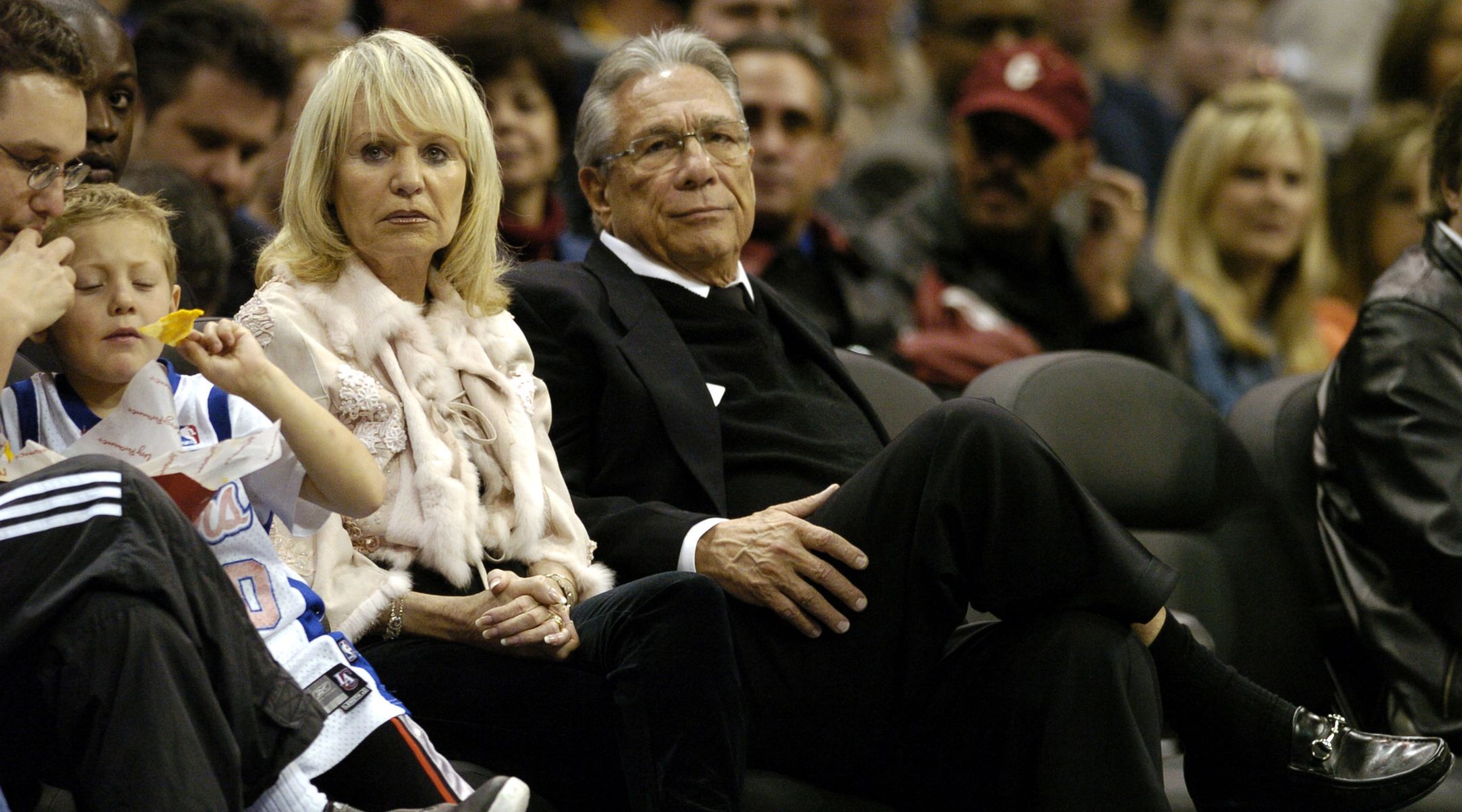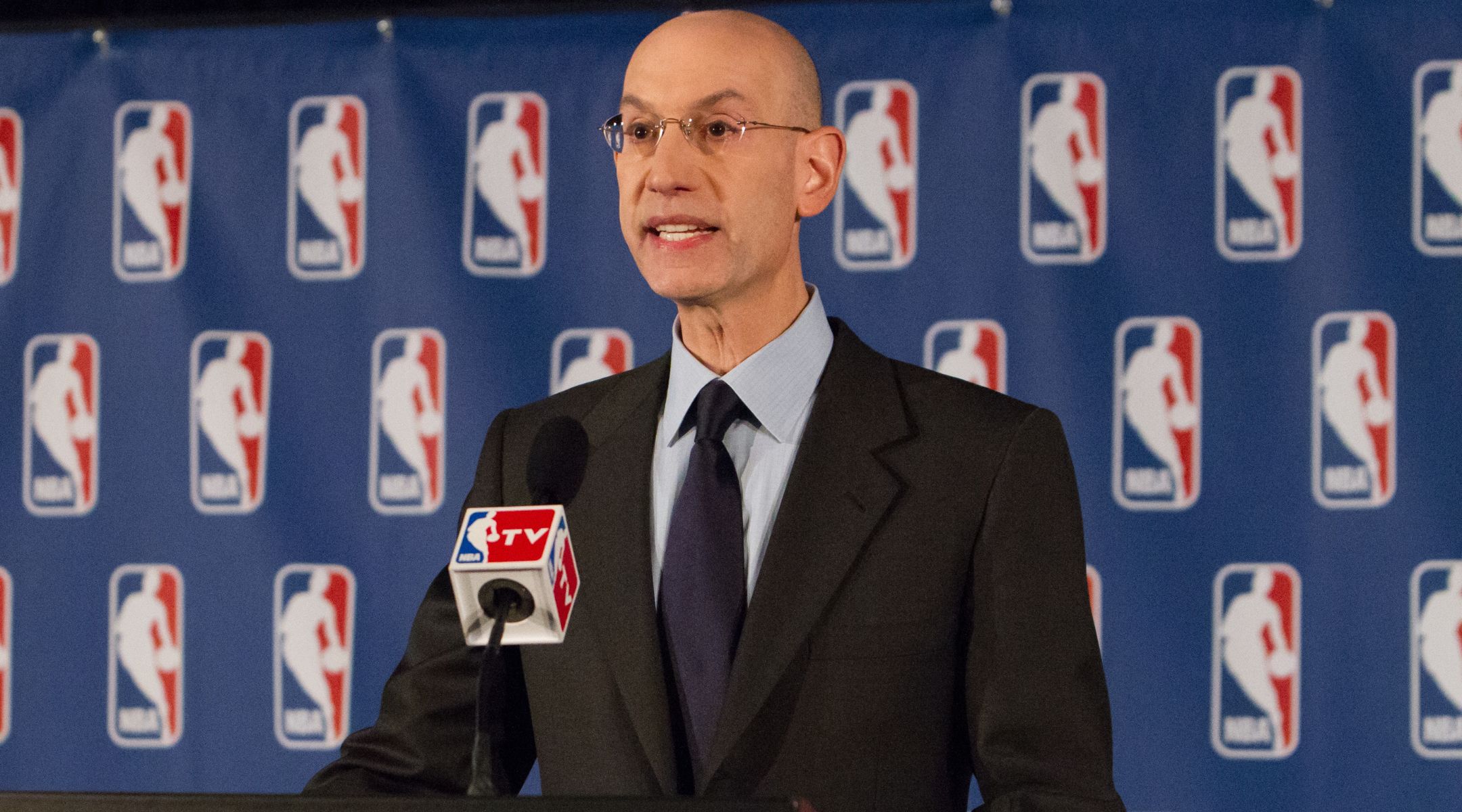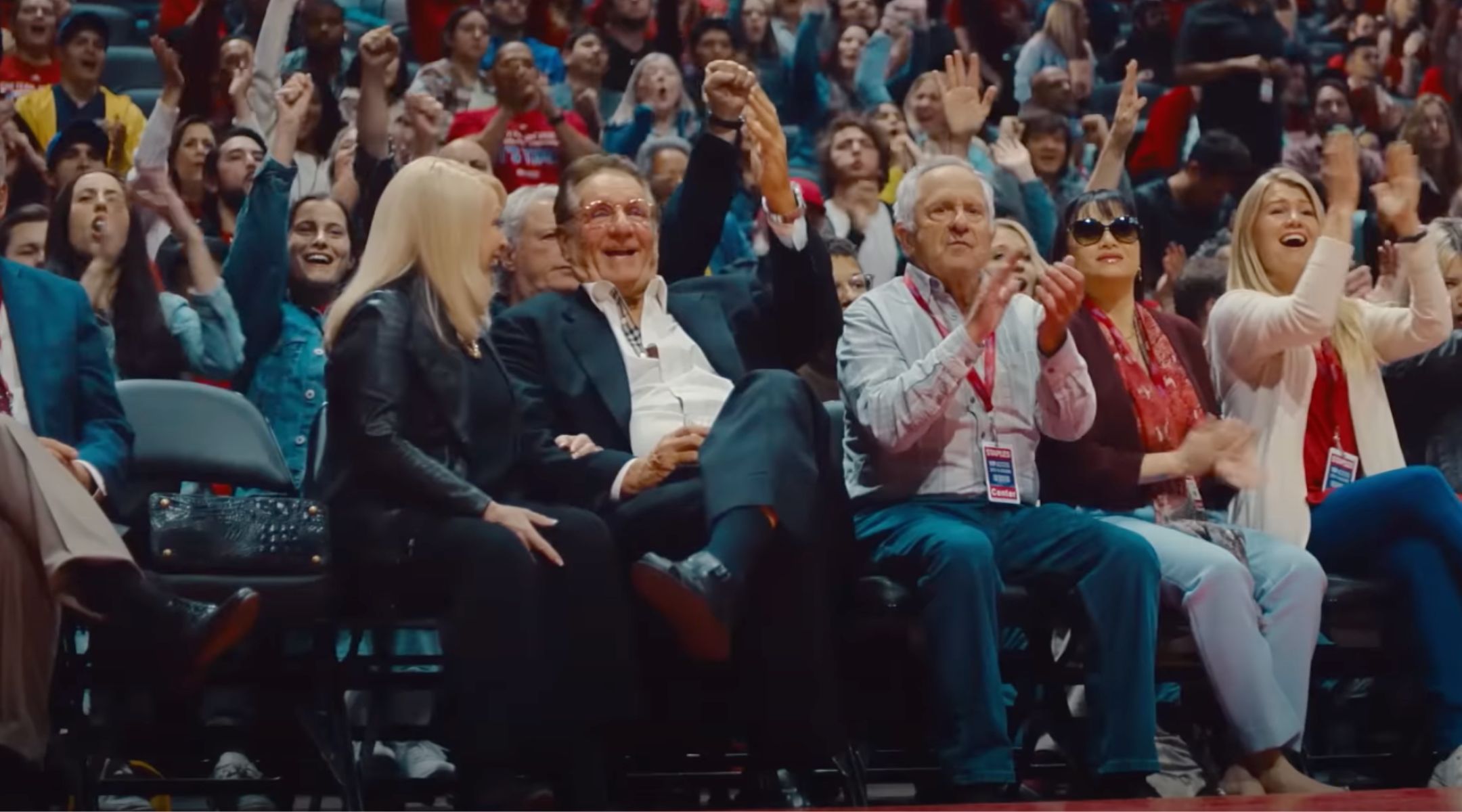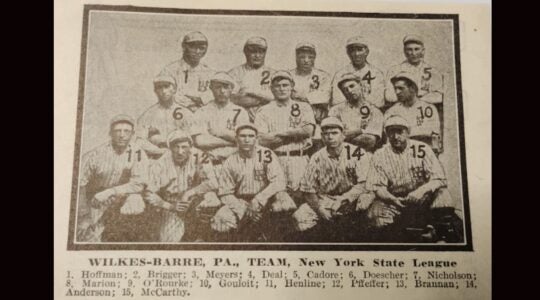Donald Sterling hasn’t owned the L.A. Clippers for a decade, but on Tuesday, his story is coming back to the spotlight with the debut of FX’s new Hulu miniseries, “Clipped.”
Sterling, born Donald Tokowitz to Ashkenazi Jewish immigrant parents, owned the Clippers from 1981 until 2014, when he received a lifetime ban and a $2.5 million fine from the NBA after private recordings revealed him making racist comments about Black people.
“Clipped,” starring Ed O’Neill as Sterling, Jacki Weaver as his wife Shelly Sterling and Laurence Fishburne as Clippers coach Doc Rivers, retells that scandal. The six-episode show is based on “The Sterling Affairs,” a five-part podcast series by ESPN reporter Ramona Shelburne, who is Jewish, and who is also an executive producer on “Clipped.”
Sterling, 90, is now largely out of the spotlight. But for the vast majority of the time he owned the Clippers, the team’s ineptitude was infamous. In his 33 seasons at the helm, the Clippers compiled the worst total winning percentage of any team across the NBA, MLB, NFL or NHL. Twice during that timespan, the team went a decade or longer without a winning season — at one point losing 70 out of 82 games.
Sterling also faced sexual harassment and discrimination lawsuits in the late 1990s and early 2000s and had previously been fined by the league multiple times. He was nearly forced to sell the team one year into his tenure because of a remark he made suggesting he wanted the team to lose.

Donald and Shelly Sterling attend a Los Angeles Clippers game, March 2, 2005, in Los Angeles. (Kirby Lee/WireImage)
The final straw came on April 25, 2014, when TMZ released a recording from a conversation between Sterling and his mistress V. Stiviano in which Sterling made racist comments about Black people.
After Stiviano, portrayed in the series by Cleopatra Coleman, posted a photo with NBA legend Magic Johnson on Instagram, Sterling was caught on tape telling Stiviano, who is part Black, “It bothers me a lot that you want to broadcast that you’re associating with Black people.”
Sterling said, “You can sleep with them. You can bring them in, you can do whatever you want. The little I ask you is not to promote it on that, and not to bring them to my games.”
In an extended tape released shortly afterward by the sports site Deadspin, Sterling also brought up Israel’s treatment of Black Jews as an apparent justification for his own views on race.
“It’s the world! You go to Israel, the Blacks are just treated like dogs,” Sterling said in the recording.
When Stiviano pressed him on whether such treatment is acceptable, Sterling responded, “There’s white Jews and Black Jews, do you understand?”
Stiviano then asked whether Black Jews are “less than the white Jews,” to which Sterling replied, “A hundred percent, 50, a hundred percent.”
Later in the tape, Stiviano mentioned the Holocaust, comparing Sterling’s views about Black people to Nazi antisemitism.
“Isn’t it wrong? Wasn’t it wrong then? With the Holocaust?” she said. “And you’re Jewish, you understand discrimination.”
Sterling replied, “You’re a mental case, you’re really a mental case. The Holocaust, we’re comparing with…”
“Racism! Discrimination,” Stiviano said.
The recordings unleashed a firestorm across the NBA and beyond, culminating in the NBA’s decision, days later, to ban Sterling from the league for life — forcing him to sell the franchise — and levy a maximum fine of $2.5 million against him.
Sterling had previously engaged with Jewish causes: In 1991, he invited the Maccabi Tel Aviv basketball team to play two exhibition games against the Clippers and said he’d direct the proceeds to the Israeli team’s youth sports program. He was inducted into the Southern California Jewish Sports Hall of Fame in 2006 and had donated to Jewish organizations in the region, according to the Forward.
But when the tapes were published, Jewish leaders were quick to condemn Sterling.
“The remarks attributed to Los Angeles Clippers owner Donald Sterling are reprehensible,” Abraham Foxman, then the national director of the Anti-Defamation League, said in a statement. “If the National Basketball Association’s investigation reveals that Mr. Sterling in fact made these racist and intolerant statements, we expect and anticipate a swift and forceful response.”
In its own statement, the United Synagogue of Conservative Judaism called Sterling’s comments “hideously racist” and noted that the controversy had unfolded in the days leading up to Yom HaShoah, Israel’s Holocaust Remembrance Day.
At the press conference announcing the NBA’s ban and fine of Sterling, league commissioner Adam Silver, who is Jewish, was asked whether he “felt a certain responsibility within the Jewish community” to respond to Sterling’s comments — including Sterling’s references to his own Jewish identity.
Silver said his response was made “as a human being,” adding that the situation was “incredibly hurtful” regardless of religion.

NBA Commissioner Adam Silver announces the lifetime ban of Los Angeles Clippers owner Donald Sterling during a press conference, April 29, 2014, in New York. (Ira Black/Corbis via Getty Images)
Sterling’s Jewish identity also came up weeks later, during an explosive interview he gave to CNN’s Anderson Cooper.
In the interview, Sterling apologized for his remarks, saying, “I can’t explain some of the stupid, foolish, uneducated words that I uttered.” He also blamed the media for the controversy and claimed he was “baited” into making the remarks. He attacked Johnson, who had called for the NBA ban, numerous times.
Sterling said that after he learned of Johnson’s HIV diagnosis, he “went to my synagogue and prayed” for him. And he twice implied that Jewish people do more for their own community than Black people do, invoking Jewish free-loan groups that were established to assist those in need.
“The Jewish people have a company, and it’s for people who want to borrow money at no interest,” Sterling said. “They want to give them a fishing pole. We want to help people. If they don’t have money, we will loan it to you. You don’t have interest. One day, you will pay us back.”
When Cooper asked if Sterling was saying that “African-Americans don’t contribute to African-American communities as much as Jewish people do,” Sterling began to say, “There’s no African-American,” before stopping himself.
(Cindy Rogoway, who served at the time as vice president of the International Association of Jewish Free Loans, did not appreciate the callout. “I’m sorry that he mentioned us,” she said. “I just think he’s a disgrace to himself.”)
Later in the interview, Sterling brought the conversation back to the Jewish community.
“Jews, when they get successful, they will help their people,” he told Cooper. “And some of the African-Americans — maybe I’ll get in trouble again — they don’t want to help anybody.”
In an interview with TMZ following the release of the tape, Johnson said Sterling’s attempts to “pit both communities against each other” would fail.
“One thing great about the African-American and Jewish communities is that they have worked well together over years, and we will continue to work with the Jewish community,” Johnson said.
JTA has documented Jewish history in real-time for over a century. Keep our journalism strong by joining us in supporting independent, award-winning reporting.






